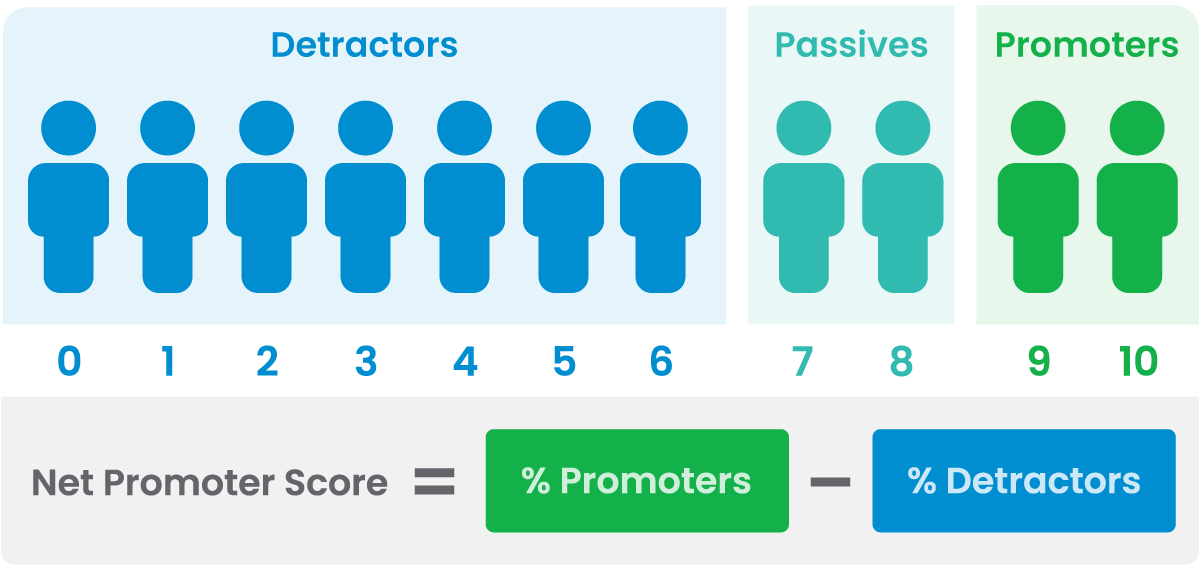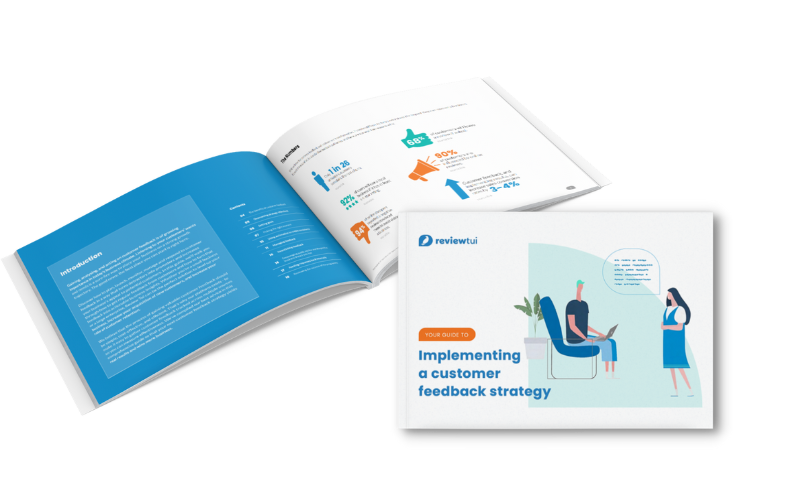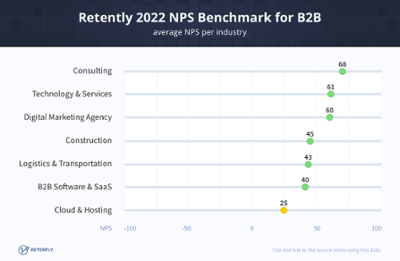NPS® feedback platform
NPS® is used by dozens of Fortune 500 companies to track customer satisfaction. Developed over 20 years ago it's become a firm favourite amongst businesses the world over. Learn about the Net Promoter Score system, how to calculate it and more here.

What is NPS®?
The Net Promoter Score ®, or Net Promoter System (NPS®) was developed by Fred Reichheld to calculate the loyalty of customers. By asking how likely the respondent is to refer your company to a friend or colleague you're able to gauge their satisfaction. The question is presented, usually, within a customer satisfaction survey and uses a sliding scale from one to ten to rate the likelihood of referral.
One of the reasons why NPS® is so popular is because it creates a single-digit score for a business to track and follow. Popular alternatives that have been developed include Customer Satisfaction Scores (CSAT) and Customer Effort Scores (CES).

Working it out
Calculate your NPS®
If you want to calculate your Net Promoter Score ®, the calculation is as follows:
- Promoters - scores of 9 or 10
- Passives - scores of 7 or 8
- Detractors - score of 6 or below
Total percentage of promoters ➖ Total percentage of detractors = NPS score
You can find more detail on how to do it in our article explaining how to calculate your Net promoter Score.
What's a good NPS® score?
For most businesses, a good NPS® score is a higher one than last week or last month. Your score can go below 0, which would imply that your customers would not recommend you to others. If a business has a lot of detractors then every sale creates one more person that will discourage others from buying from you! Any score above 0 is good, but the higher you are, the better. There's a lot of variance between industry averages, and several countries have very different results in their industriea than others. An industry like telecommunications (specifically broadband providers) in the United States has a famously low average NPS® due to its notoriously poor customer service.
Leading NPS® scoring platform Retently shared industry benchmarks for key industries from data they'd collected over 4 years. While they didn't share whether this was for one country or global data it shows just how varied each industry's NPS® can be.
The pros and cons of using NPS®
Famously simple and adopted by hundreds of the world's largest companies NPS is a leading scoring system. But it's not without its flaws. We've analysed the positives and negatives of the Net Promoter Score in this article.
Why doesn't Review Tui use NPS®?
Review Tui does not utilise the Net Promoter Score® because we believe much better measurements of customer satisfaction have emerged in the nearly two decades since its inception. Times have changed, and customer expectations have been revised yet the score has remained the same. Learn more by reading our blog on why NPS® is an irrelevant metric in today's business or see below...
Reason 1
NPS® asks one question 'how likely are you to recommend us' and bases everything on that single response. We believe that's not enough to gauge a business's success. The unhappy customer is underrepresented and the business misses key insights.
Reason 2
Its scores have an infinite lifespan. A response from 2 years ago, while not a reflection of the business now, will still impact a business's score and we don't think that's a good thing.
Reason 3
This score is based on intent, not action. We think a more accurate customer satisfaction score should look at whether a customer actually promoted your business to others. Not merely said they might.

Customer feedback strategy guide
Develop your very own customer feedback strategy with our free digital guide. From winning over senior management to identifying the moments in the customer's journey for valuable feedback this guide is packed with advice. Learn the framework required to get consistent and insightful customer feedback and how to implement it across your business quickly.
Solutions
What we do instead
Review Tui is creating a more valuable and accurate scoring metric. How are we doing this? Easy, we're using more factors than ever before to assess the impact that opinion has on your business and the value it presents to your decision-making.
Our scoring system uses a multitude of factors, as well as the respondent's input, to accurately show whether your business is giving a positive or negative experience to your clients.
What's even better is that our scoring system is constantly growing and evolving. As Review Tui integrates with more of your business the algorithm gains additional touchpoints, which it can use to refine your score. It's a scoring matrix for the modern, multi-faceted way we interact with customers, beyond a single question.



